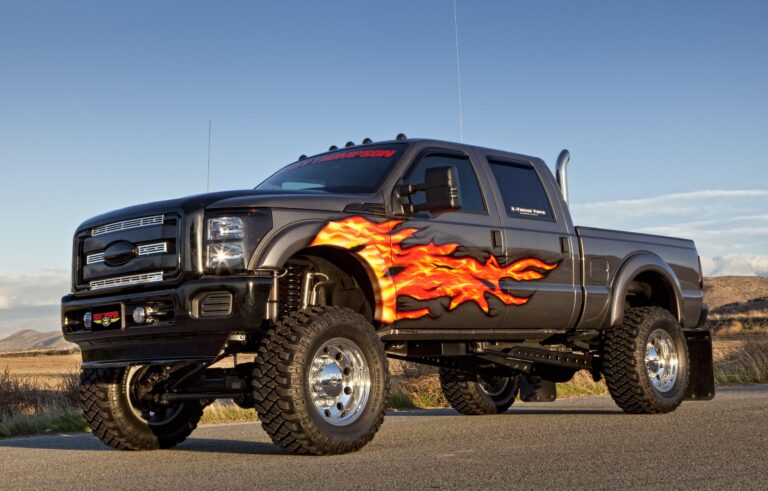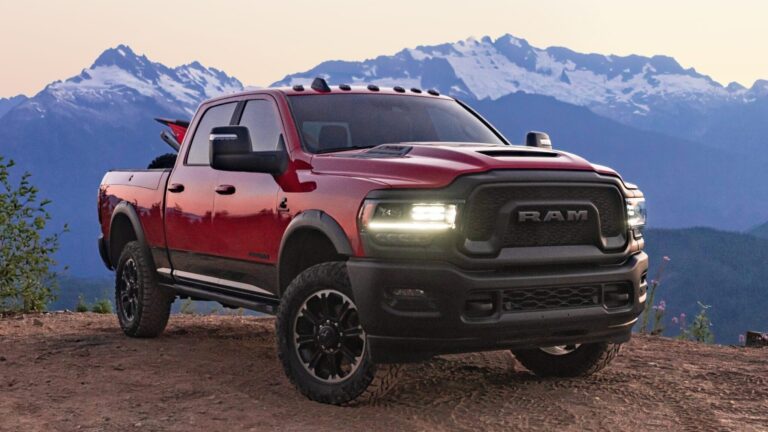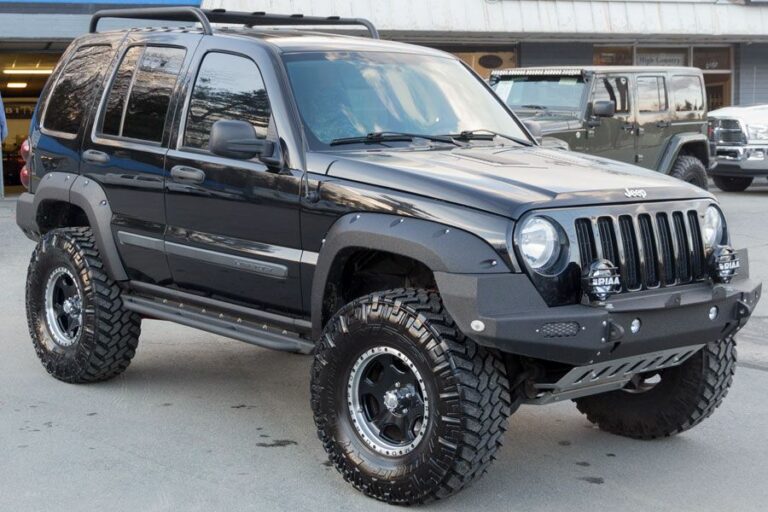Medium Duty Trucks For Sale In Texas: Your Comprehensive Guide to Navigating the Market
Medium Duty Trucks For Sale In Texas: Your Comprehensive Guide to Navigating the Market cars.truckstrend.com
Texas, with its sprawling economy, diverse industries, and booming population, is a powerhouse for commercial activity. From the oilfields of West Texas to the rapidly expanding urban centers and agricultural heartlands, businesses across the Lone Star State rely heavily on robust and versatile vehicles to keep their operations running smoothly. At the core of this commercial ecosystem are medium-duty trucks, the workhorses that bridge the gap between light-duty pickups and heavy-duty semi-trucks.
This comprehensive guide will delve into everything you need to know about medium-duty trucks for sale in Texas, from understanding their classification and applications to navigating the buying process, exploring popular models, and ensuring you make an informed decision that drives your business forward.
Medium Duty Trucks For Sale In Texas: Your Comprehensive Guide to Navigating the Market
What Defines a Medium Duty Truck?
Medium-duty trucks are generally classified as vehicles with a Gross Vehicle Weight Rating (GVWR) ranging from 14,001 to 26,000 pounds. This classification falls under Classes 4, 5, and 6 of the commercial truck rating system. Their versatility is their greatest strength, making them indispensable for a wide array of vocational applications.
Unlike light-duty trucks designed for personal use or lighter hauling, medium-duty trucks are built on heavier chassis, featuring more robust suspensions, stronger engines, and larger brake systems to handle significant payloads and continuous commercial operation. They are also distinct from heavy-duty trucks (Class 7 and 8), which typically require a Class A Commercial Driver’s License (CDL) for operation and are designed for extreme loads and long-haul transportation. For many medium-duty trucks, particularly those under 26,001 lbs GVWR, a standard driver’s license suffices, significantly broadening their accessibility for businesses.
Common applications for medium-duty trucks include:
- Local Delivery: Box trucks for moving goods, parcel delivery, furniture transport.
- Vocational Services: Utility trucks for electricians, plumbers, HVAC technicians; landscaping trucks with dump beds.
- Construction Support: Smaller dump trucks, flatbeds for material transport, service trucks.
- Food & Beverage Distribution: Refrigerated trucks (reefers) for perishable goods.
- Waste Management: Smaller refuse trucks.
- Emergency Services: Ambulances, fire apparatus (often built on medium-duty chassis).

Why Texas is a Hub for Medium Duty Truck Sales

The sheer scale and diversity of the Texas economy make it an unparalleled market for medium-duty trucks. Several factors contribute to this:
- Economic Growth & Diversification: Texas boasts a consistently growing economy, driven by sectors like oil and gas, manufacturing, technology, healthcare, and a thriving construction industry. Each of these sectors generates immense demand for transportation and specialized services that medium-duty trucks fulfill.
- Population Boom: Rapid population growth, particularly in metropolitan areas like Houston, Dallas-Fort Worth, Austin, and San Antonio, translates to increased demand for residential and commercial services, retail delivery, and infrastructure development, all of which require medium-duty vehicles.
- Extensive Infrastructure: Texas has an expansive network of highways and urban roads, facilitating efficient transport across vast distances. This infrastructure supports the constant movement of goods and services that medium-duty trucks are perfectly suited for.
- Logistics & Distribution Hub: Due to its central location and robust transportation networks (ports, railways, major highways), Texas serves as a critical logistics and distribution hub for the entire country, further fueling the need for commercial vehicles.
- Agricultural Powerhouse: From vast ranches to crop farms, agriculture remains a significant industry in Texas, requiring medium-duty trucks for hauling feed, equipment, and produce.

The confluence of these factors creates a dynamic and competitive market with a wide selection of new and used medium-duty trucks available across the state.
Key Considerations When Buying a Medium Duty Truck in Texas
Purchasing a medium-duty truck is a significant investment. Careful consideration of several factors will ensure you select the right vehicle for your specific needs:
- New vs. Used:
- New Trucks: Offer the latest technology, full manufacturer warranties, and customization options. They come with a higher initial cost but often have better fuel efficiency and lower immediate maintenance needs.
- Used Trucks: Present a more budget-friendly option, with significant depreciation already absorbed. The challenge lies in verifying maintenance history and condition. A thorough inspection is crucial.
- Application-Specific Needs:
- Body Type: Do you need a box truck (dry van, refrigerated), flatbed, dump truck, service body, stake bed, or a specialized vocational upfit? The primary use case dictates the body configuration.
- Payload Capacity: Calculate the maximum weight you’ll regularly carry, including the body, equipment, and cargo. Ensure the truck’s GVWR and Gross Axle Weight Ratings (GAWR) can safely handle it.
- Engine & Drivetrain:
- Diesel vs. Gasoline: Diesel engines offer superior torque, fuel efficiency (especially under load), and longevity, making them ideal for heavy, continuous use. Gasoline engines typically have lower upfront costs, are quieter, and are easier to maintain for lighter duties.
- Transmission: Automatic transmissions are common for ease of driving in urban environments, while manual transmissions might offer more control for specific applications.
- GVWR & CDL Requirements: Be mindful of the GVWR. Trucks with a GVWR of 26,001 pounds or more, or those towing a trailer with a GVWR over 10,000 pounds (if the combined GVWR exceeds 26,000 lbs), typically require a CDL. Ensure your drivers are properly licensed or factor in CDL training.
- Maintenance & Service Network: Consider the availability of authorized service centers and parts for your chosen make and model in your operational area. Downtime is costly, so reliable support is essential.
- Budget & Financing: Determine your budget for the purchase, including the cost of the chassis, body, and any upfitting. Explore financing options through dealerships, commercial lenders, or credit unions. Many lenders specialize in commercial vehicle loans.
- Technology & Features: Modern medium-duty trucks offer advanced safety features (e.g., collision avoidance, lane departure warnings), telematics for fleet management, and driver comfort features. Evaluate which technologies are beneficial for your operations.
Popular Medium Duty Truck Manufacturers and Models in Texas
The Texas market offers a robust selection from leading manufacturers, each with its strengths:
- Ford: The F-Series Super Duty (F-450, F-550) and Chassis Cab models (F-650, F-750) are incredibly popular, known for their durability, powerful engines (gas and diesel), and wide range of upfitting options.
- Ram: Ram 4500 and 5500 Chassis Cab trucks offer strong Cummins diesel engine options and are favored for vocational applications requiring substantial towing and payload.
- Chevrolet/GMC: The Silverado and Sierra HD Chassis Cab models (4500HD, 5500HD, 6500HD) re-entered the medium-duty market, providing competitive options with GM’s Duramax diesel and gasoline engines.
- Freightliner: The M2 106 is a dominant force in the medium-duty segment, highly customizable, reliable, and popular for various vocational uses, including delivery, utility, and construction.
- International Trucks: The MV Series offers a versatile platform for diverse applications, known for its robust construction and driver-friendly features.
- Hino Trucks: A Toyota Group company, Hino offers Class 4-7 trucks known for their reliability, fuel efficiency, and comprehensive warranty programs.
- Isuzu Commercial Trucks: The N-Series (Class 3-5) and F-Series (Class 6-7) are popular cab-over-engine designs, offering excellent maneuverability in urban environments and strong payload capacities, particularly the Isuzu NPR.
Where to Find Medium Duty Trucks For Sale in Texas
Texas provides numerous avenues for finding your next medium-duty truck:
- Authorized Dealerships: The most reliable source for new trucks, offering manufacturer warranties, financing, and service. Many also have extensive inventories of certified pre-owned trucks. Major cities like Houston, Dallas, San Antonio, and Austin have multiple dealerships for all major brands.
- Used Commercial Truck Dealerships: Specializing solely in used commercial vehicles, these dealers offer a wider variety of makes, models, and price points. Be sure to check their reputation and the quality of their inspection process.
- Online Marketplaces: Websites like Commercial Truck Trader, TruckPaper.com, and RitchieSpecs (for auctions) provide vast listings from dealers and private sellers across Texas and beyond. General marketplaces like eBay Motors and Craigslist can also have listings, but exercise extreme caution.
- Commercial Truck Auctions: Public and private auctions (e.g., Ritchie Bros., IronPlanet) can be a source of good deals, particularly for fleet liquidations. However, "buyer beware" applies strongly here, as trucks are often sold "as-is."
- Direct from Businesses: Some companies upgrade their fleets regularly and sell their used trucks directly. This can be found through local business networks or classifieds.
Tips for a Successful Medium Duty Truck Purchase
- Define Your Needs Precisely: Before looking, create a detailed list of your operational requirements: payload, required body type, daily mileage, terrain, driver availability (CDL vs. non-CDL), and budget.
- Conduct Thorough Inspections: For used trucks, a pre-purchase inspection by an independent, certified mechanic is non-negotiable. For new trucks, inspect the specific unit for any transit damage or missing features.
- Review Maintenance Records: A well-documented service history is a strong indicator of a truck’s longevity and reliability.
- Test Drive Extensively: Drive the truck under conditions similar to its intended use. Pay attention to engine performance, transmission shifting, brakes, steering, and any unusual noises.
- Negotiate Wisely: Research market prices for comparable trucks to ensure you’re getting a fair deal. Don’t be afraid to walk away if the terms aren’t right.
- Understand Warranties: For new trucks, know what the manufacturer’s warranty covers. For used trucks, inquire about any remaining factory warranty or dealer-offered warranties.
- Factor in Upfitting Costs: The chassis is often just the beginning. The cost of the specialized body (box, flatbed, dump, etc.) and any custom equipment can significantly add to the total investment.
Challenges and Solutions in the Medium Duty Truck Market
While the Texas market is robust, buyers might encounter a few challenges:
- High Upfront Costs: Commercial trucks are expensive.
- Solution: Explore diverse financing options, consider well-maintained used trucks, or lease instead of buying outright.
- Finding the Exact Configuration: Specific body types or unique features can be hard to locate immediately.
- Solution: Work closely with a reputable dealer who can order custom builds or source specific used models. Be prepared for lead times on new custom orders.
- Ongoing Maintenance Expenses: Commercial trucks require regular and often costly maintenance.
- Solution: Implement a strict preventative maintenance schedule. Budget adequately for repairs. Consider extended service agreements for new trucks.
- CDL Requirements & Driver Shortages: If your chosen truck falls into the CDL category, finding qualified drivers can be a hurdle.
- Solution: Invest in CDL training for existing employees or utilize recruitment agencies specializing in commercial drivers. Consider trucks below 26,001 lbs GVWR if a CDL is a significant barrier.
Illustrative Price Table for Medium Duty Trucks in Texas (Estimates Only)
Prices for medium-duty trucks vary widely based on make, model, year, condition (new/used), mileage, engine type, and specific body upfits. The table below provides general illustrative price ranges for common configurations in the Texas market. These are estimates and subject to change based on market conditions, location, and individual seller.
| Truck Type/Category | Condition | GVWR Range (Approx.) | Typical Price Range (USD) | Key Considerations |
|---|---|---|---|---|
| Chassis Cab (Entry-Level) | New | Class 4-5 (14k-19.5k) | $45,000 – $70,000 | Ideal for custom upfits, basic models, gasoline engines common. |
| Chassis Cab (Heavy-Duty MD) | New | Class 6 (19.5k-26k) | $70,000 – $100,000+ | Often diesel, robust for heavier vocational applications. |
| Box Truck (16-20 ft) | New | Class 4-5 | $75,000 – $110,000+ | Includes body, common for delivery, various door/ramp options. |
| Box Truck (22-26 ft) | New | Class 6 | $90,000 – $130,000+ | Larger capacity, often requires more robust chassis. |
| Refrigerated Box Truck (Reefer) | New | Class 5-6 | $120,000 – $200,000+ | Includes refrigeration unit, higher specialized cost. |
| Flatbed Truck | New | Class 4-6 | $70,000 – $120,000+ | Versatile for material transport, can include stake sides or liftgates. |
| Small Dump Truck | New | Class 5-6 | $85,000 – $150,000+ | Vocational body included, hydraulics, ideal for construction/landscaping. |
| Service/Utility Truck | New | Class 4-6 | $80,000 – $140,000+ | Specialized compartments, often with cranes or air compressors. |
| Used Chassis Cab (3-7 yrs old) | Used | Class 4-6 | $25,000 – $55,000 | Good value, inspect maintenance records carefully. |
| Used Box Truck (3-7 yrs old) | Used | Class 4-6 | $30,000 – $65,000 | Varies greatly by mileage, condition, and previous use. |
| Used Vocational Truck (5-10 yrs old) | Used | Class 5-6 | $35,000 – $80,000 | Dump, Flatbed, Service – condition of specialized equipment is key. |
Frequently Asked Questions (FAQ) about Medium Duty Trucks in Texas
Q1: What is the typical GVWR range for medium-duty trucks?
A1: Medium-duty trucks generally have a Gross Vehicle Weight Rating (GVWR) between 14,001 and 26,000 pounds, covering Class 4, Class 5, and Class 6 vehicles.
Q2: Do I need a CDL to drive a medium-duty truck in Texas?
A2: Not necessarily. In Texas (and most states), a Commercial Driver’s License (CDL) is typically required if the truck has a GVWR of 26,001 pounds or more, or if it is towing a trailer with a GVWR of 10,001 pounds or more AND the Gross Combination Weight Rating (GCWR) exceeds 26,000 pounds. Many Class 4 and 5 medium-duty trucks can be operated with a standard Class C driver’s license. Always verify the specific truck’s GVWR.
Q3: What’s the typical lifespan of a medium-duty truck?
A3: With proper maintenance, a medium-duty truck can last 300,000 to 500,000 miles or more, depending on its application, engine type (diesel often lasts longer), and how well it’s maintained. Many operate reliably for 10-15 years or even longer.
Q4: Where can I get financing for a commercial truck in Texas?
A4: You can obtain financing through the truck dealership’s finance department, commercial banks, credit unions, or specialized commercial vehicle lending companies. It’s advisable to compare offers from multiple lenders.
Q5: Are diesel or gas engines better for medium-duty trucks?
A5: Diesel engines are generally preferred for heavier loads, longer routes, and continuous operation due to their superior torque, fuel efficiency, and durability. Gasoline engines are often found in lighter medium-duty trucks (Class 4-5) and are suitable for shorter routes, stop-and-go driving, and have lower upfront costs and simpler maintenance. The "better" choice depends on your specific operational needs.
Q6: What kind of maintenance is required for medium-duty trucks?
A6: Regular preventative maintenance is crucial, including oil changes, filter replacements (oil, fuel, air), tire rotations, brake inspections, fluid checks (transmission, coolant, power steering), and lubrication of chassis components. Following the manufacturer’s recommended service schedule is vital for longevity and performance.
Conclusion
The market for medium-duty trucks for sale in Texas is as vast and dynamic as the state itself. These indispensable vehicles serve as the backbone for countless businesses, facilitating everything from local deliveries to specialized vocational services. By thoroughly understanding their classifications, applications, and the critical factors involved in the purchasing process, businesses can make informed decisions that secure a reliable, efficient, and profitable asset for years to come. Whether you’re a new startup or an expanding enterprise, the right medium-duty truck in Texas is waiting to power your success.






